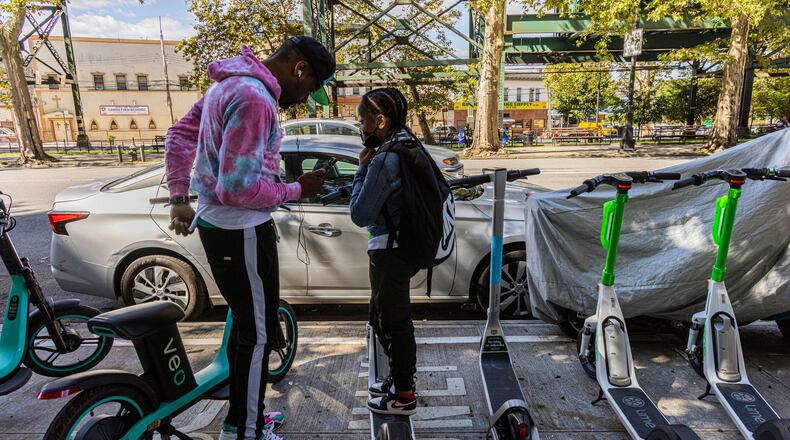Kettering’s legislation to allow the vehicles — which are now temporarily banned there — needs to be changed to better protect those with impairments, said Todd Elzey, treasurer of the National Federation of the Blind of Ohio.
“I ask you to reject this ordinance as it stands right now and to consider rewriting this so there are greater ADA protections for pedestrians with disabilities,” Elzey, a Kettering resident, told city council.
Kettering City Manager Mark Schwieterman said he intends to meet with Elzey about the city’s proposal, which was introduced Tuesday night.
The legislation will not be voted on until at least later this month, officials said.
Schwieterman said the city wants “to make sure we can address some of those issues” raised by Elzey “either by the interpretation of the ordinance that we already have or by what possible changes might be necessary.”
The city of Dayton in 2019 voted to allow and regulate the vehicles while Oakwood last year banned them, labeling “dockless electric scooters and bicycles” a “public nuisance.”
Centerville has introduced a measure to ban the scooters, but has taken no action since July. That city had earlier passed a 12-month moratorium, which expires in March.
One Centerville council member called the scooters a “hazard” for pedestrians and joggers, but another asked if they could be restricted to designated areas.
Kettering’s proposed legislation comes after the city extended its temporary moratorium on the devices until February 2022.
The city’s staff is recommending permitting the vehicles “under a framework of regulations that allow Kettering residents to reap the benefits of such devices while limiting the risks,” records show.
But the current version of guidelines for the vehicles fails to address a variety of concerns, the most significant of which is pedestrian safety, Elzey said.
“They are particularly quiet because of most of them are electric,” he said. “This takes away from a blind or hearing-impaired pedestrian the ability to protect their own safety because you can’t hear them coming.
“I know the ordinance calls for people riding these scooters to call out when they’re going to pass somebody,” he said, but “people routinely do not do that.”
About the Author

